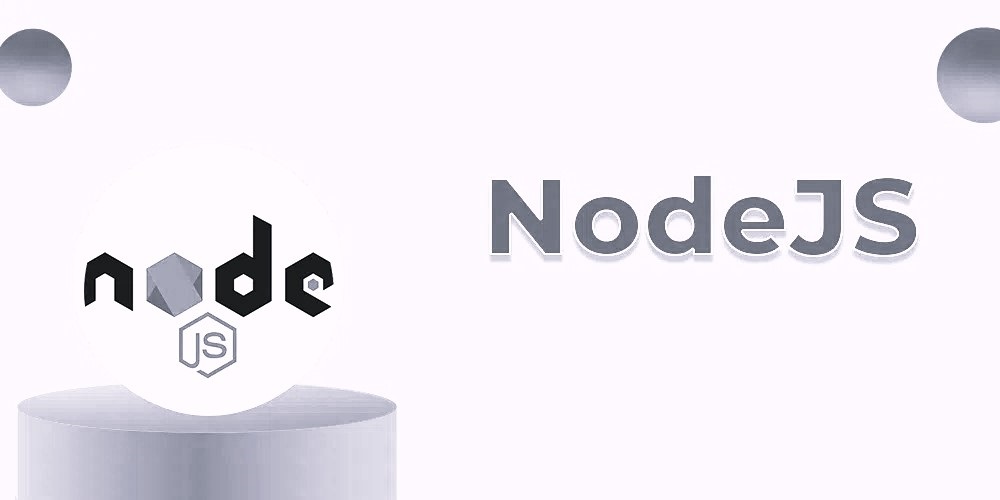Subtotal: $318.00
Best Node.js Courses & Certifications 2023
Node.js is a powerful runtime environment that allows developers to build server-side applications using JavaScript. With its growing popularity, many individuals are seeking the best Node.js courses and certifications to enhance their skills and stay competitive in the field. In this article, we will explore some of the top courses and certifications available in 2023-2024, along with a special focus on the renowned platform skill24.
1. Introduction to Node.js Online Courses
Node.js is an open-source, cross-platform JavaScript runtime environment that enables developers to execute JavaScript code outside the web browser. It utilizes an event-driven, non-blocking I/O model, making it highly efficient and suitable for building scalable network applications. Node.js has gained immense popularity due to its ability to handle a large number of concurrent connections and its extensive package ecosystem, which includes frameworks, libraries, and tools.
2. Importance of Node.js Courses and Certifications
With the increasing demand for Node.js developers in the industry, obtaining proper training and certifications has become crucial. Enrolling in Node.js courses and earning certifications not only enhances your knowledge and expertise but also validates your skills to potential employers. These courses provide structured learning paths, hands-on exercises, and real-world projects to help you gain practical experience in developing Node.js applications. Additionally, certifications serve as tangible proof of your proficiency and commitment to professional growth.
3. Top Node.js Courses and Certifications
3.1 Node.js Crash Course: Building a RESTful API
In this introductory course, you will learn the fundamentals of Node.js and build a RESTful API from scratch. The course covers topics such as routing, handling requests and responses, connecting to databases, and implementing authentication and authorization.
3.2 Advanced Node.js Concepts: Scalability and Performance
This advanced course focuses on optimizing the performance and scalability of Node.js applications. You will explore techniques for load balancing, caching, clustering, and asynchronous programming to ensure your applications can handle high traffic and scale effectively.
3.3 Full-Stack Web Development with Node.js and React
This comprehensive course covers both the front-end and back-end development using Node.js and React. You will learn to build interactive web applications by combining the power of Node.js on the server-side and React on the client-side.
3.4 Node.js Security Best Practices
Security is of utmost importance in web development. This course guides you through various security vulnerabilities and teaches you how to implement best practices to protect your Node.js applications from common threats, such as cross-site scripting (XSS) and SQL injection.
3.5 Serverless Applications with Node.js and AWS Lambda
Serverless architecture is gaining traction in the industry. This course demonstrates how to build serverless applications using Node.js and AWS Lambda. You will learn to leverage the benefits of serverless computing, including cost efficiency, scalability, and reduced infrastructure management.
3.6 Node.js Performance Optimization Techniques
In this course, you will delve into advanced techniques for optimizing the performance of Node.js applications. From memory management to profiling and benchmarking, you will learn strategies to identify and resolve bottlenecks, ensuring your applications perform optimally.
3.7 Real-time Web Applications with Node.js and Socket.IO
Real-time web applications require bidirectional communication between clients and servers. This course introduces you to Socket.IO, a popular library for building real-time applications with Node.js. You will learn to implement features like chat functionality and live data updates.
3.8 Building Chat Applications with Node.js and Express
Chat applications have become increasingly popular, and this course teaches you how to build one using Node.js and Express. You will learn to implement features like user authentication, real-time messaging, and chat room functionality.
3.9 Testing and Debugging Node.js Applications
Testing and debugging are essential skills for any developer. This course focuses on testing Node.js applications using frameworks like Mocha and Chai. You will also explore debugging techniques to diagnose and fix issues in your code effectively.
3.10 Deploying Node.js Applications to Production
Deploying Node.js applications correctly is crucial to ensure they run smoothly in production environments. This course covers various deployment strategies, including containerization with Docker, and explores tools like PM2 for process management and monitoring.
3.11 Architecting Microservices with Node.js and Docker
Microservices architecture is widely adopted in modern application development. This course teaches you how to design and build scalable microservices using Node.js and Docker. You will learn techniques for inter-service communication, data management, and fault tolerance.
3.12 Node.js and MongoDB: Building a RESTful API
MongoDB is a popular NoSQL database that integrates well with Node.js. In this course, you will learn how to build a RESTful API using Node.js and MongoDB, covering topics such as data modeling, CRUD operations, and indexing for performance.
3.13 Asynchronous Programming in Node.js
Asynchronous programming is fundamental to Node.js. This course explores asynchronous patterns and techniques, including callbacks, promises, and async/await. You will gain a deep understanding of event-driven programming and non-blocking I/O.
3.14 Introduction to TypeScript for Node.js Developers
TypeScript adds static typing to JavaScript, providing better tooling and error checking. This course introduces TypeScript for Node.js developers, covering topics like type annotations, interfaces, generics, and module systems, to improve code maintainability and productivity.
3.15 Building GraphQL APIs with Node.js
GraphQL is an alternative to traditional REST APIs, offering increased flexibility and efficiency. In this course, you will learn how to build GraphQL APIs with Node.js using popular libraries like Apollo Server. You will explore schema design, query execution, and handling mutations.
Conclusion
Investing time and effort in learning Node.js through courses and certifications can significantly boost your career prospects as a developer. By acquiring the right skills and knowledge, you can stay at the forefront of this rapidly evolving technology. Explore the mentioned courses and certifications to enhance your Node.js expertise and unlock new opportunities in the dynamic world of web development.
FAQs (Frequently Asked Questions)
-
Q: Are these Node.js courses suitable for beginners?
A: Yes, several courses offer introductory content suitable for beginners. Look for courses labeled as "fundamentals" or "crash courses" to start your Node.js learning journey. -
Q: Can I earn certifications for completing these Node.js courses?
A: Yes, many of the mentioned courses offer certifications upon successful completion. These certifications can serve as valuable credentials to showcase your Node.js skills. -
Q: Which Node.js course should I choose if I want to specialize in security?
A: "Node.js Security Best Practices" is specifically designed to cover security aspects of Node.js development. It provides in-depth knowledge and practical guidance to secure your applications. -
Q: Are there any prerequisites for these courses?
A: Prerequisites vary depending on the course. While some courses require basic JavaScript knowledge, others may assume familiarity with web development concepts. Check the course descriptions for specific requirements. -
Q: How long does it take to complete a typical Node.js course?
A: Course durations vary, ranging from a few hours to several weeks. The length depends on the depth of the content and the time you allocate for learning and practice.
 HTML5 Course
HTML5 Course JS
ES6 Course
JS
ES6 Course PHP
Course
PHP
Course Python Course
Python Course WordPress Course
WordPress Course


